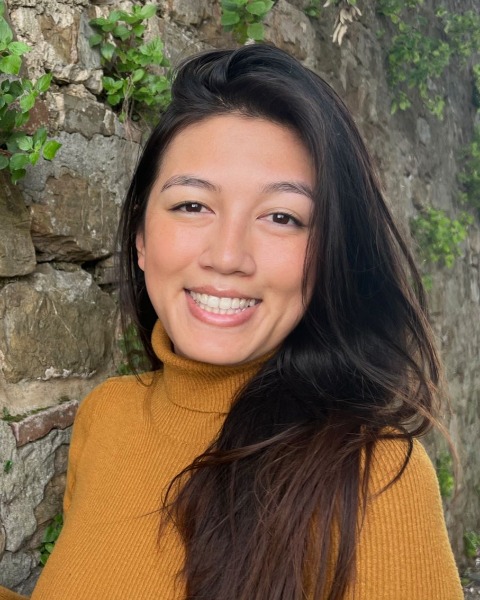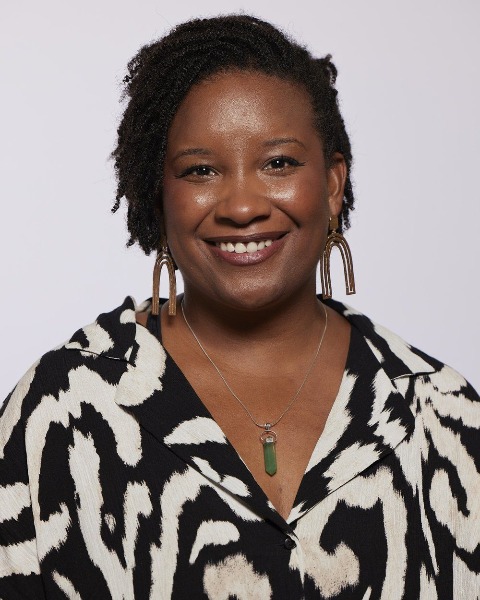Behavioral and Social Sciences
Multidimensional and Intersectional Approaches to Accessible and Healthy Aging in Diverse Populations
-

Catherine Garcia, PhD (she/they)
Assistant Professor
Human Development and Family Science
Syracuse University
Syracuse, New York, United States -

Christina Miyawaki, PhD, MSW, MA, FGSA (she/her/hers)
Associate Professor
Graduate College of Social Work
University of Houston
Houston, Texas, United States -
NQ
Nekehia Tamara Quashie, PhD (she/her/hers)
Assistant Professor
Department of Health Studies
University of Rhode Island
Kingston, Rhode Island, United States -

Sheila Thompson, BS (she/her/hers)
PhD Student
Psychology
Palo Alto University
Palo Alto, California, United States -

Victoria Guinn, MS (she/her/hers)
Graduate Student
Clinical Psychology
Palo Alto University
Palo Alto, California, United States -

Erin Ballard, M.A. (she/her/hers)
Graduate Student
Psychology
University of Alabama at Birmingham
Birmingham, Alabama, United States
Chair(s)
Individual Symposium Abstract First Author(s)
Aging is a complex process that affects different individuals in different ways. To ensure that healthy aging is accessible for all individuals, it is crucial to consider the unique needs of diverse populations through multidimensional and intersectional approaches. Multidimensional approaches recognize that aging is a complex process and that many different factors shape how individuals experience it. Intersectional approaches to aging consider individuals' multiple identities and social locations, creating unique experiences and needs around aging. When these two approaches are combined, it is possible to create accessible and healthy aging for individuals from all backgrounds. The five presentations in this symposium center on two large and diverse racial and ethnic groups in the U.S. – Vietnamese and Puerto Rican older adults – groups underrepresented in studies of aging. Using data from the Vietnamese Aging and Care Survey (VACS), Miyawaki and colleagues examine the association between disability, chronic disease, and depression. The next set of presentations uses longitudinal data from the Puerto Rican Elderly Health Conditions Project (PREHCO). Quashie and colleagues explore whether neighborhood socioeconomic status moderates the relationship between living arrangements and cardiometabolic disease. Thompson and colleagues examine the relationship between hurricane stressors and cognition. Guinn and colleagues examine whether social support mediates the relationship between hurricane-related stressors and depression. Ballard and colleagues examine how hurricane-related stressors influence perceived stress. Overall, the results from these investigations show a need for authentic community and stakeholder engagement to develop, implement, and create sustainable interventions to promote healthy aging.
Learning Objectives:
- After attending this session, participants will be able to describe the patterns of health risk among older Vietnamese and Puerto Ricans adults.
- After attending this session, participants will be able to understand the importance of authentic community and stakeholder engagement to develop, implement, and create sustainable interventions to promote healthy aging.
Presentations:
-
8:00 AM - 9:30 AM ETAssociations Between Disability, Chronic Diseases, and Depressive Symptoms in Vietnamese Older Adults
Individual Symposium Abstract First Author: Christina E. Miyawaki, PhD, MSW, MA, FGSA (she/her/hers) – University of Houston
-
8:00 AM - 9:30 AM ETNeighborhood Socioeconomic Position, Living Arrangements, and Cardiometabolic Disease Among Older Puerto Ricans
Individual Symposium Abstract First Author: Nekehia Tamara Quashie, PhD (she/her/hers) – University of Rhode Island
-
8:00 AM - 9:30 AM ETThe Relationship Between Hurricane Stressors and Cognition in Puerto Rican Older Adults
Individual Symposium Abstract First Author: Sheila M. Thompson, BS (she/her/hers) – Palo Alto University
-
8:00 AM - 9:30 AM ETHurricane Stressors and Buffers in Relation to Depressive Symptoms Among Older Adults in Puerto Rico
Individual Symposium Abstract First Author: Victoria L.A Guinn, MS (she/her/hers) – Palo Alto University
-
8:00 AM - 9:30 AM ETAssociations Between Hurricane-Related Stressors and Perceived Stress in a Sample of Puerto Ricans
Individual Symposium Abstract First Author: Erin Ballard, M.A. (she/her/hers) – University of Alabama at Birmingham
